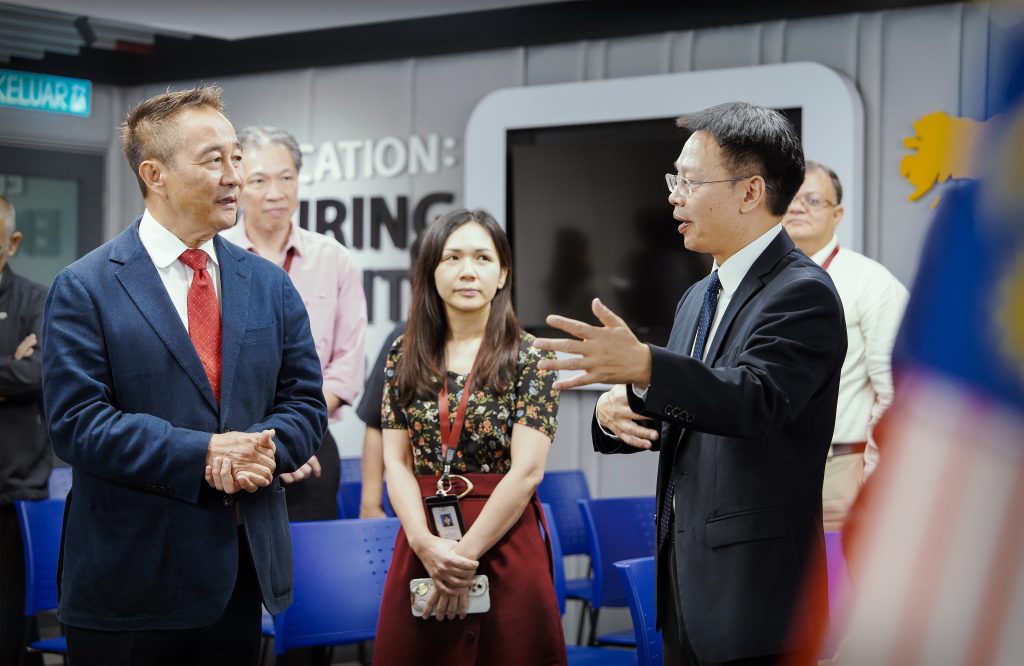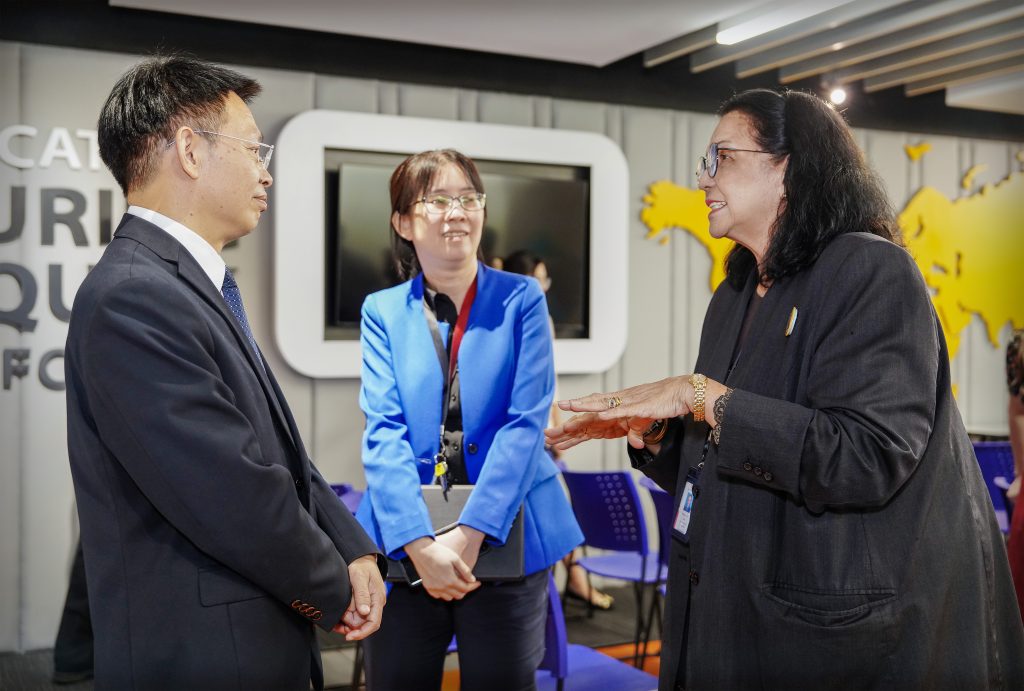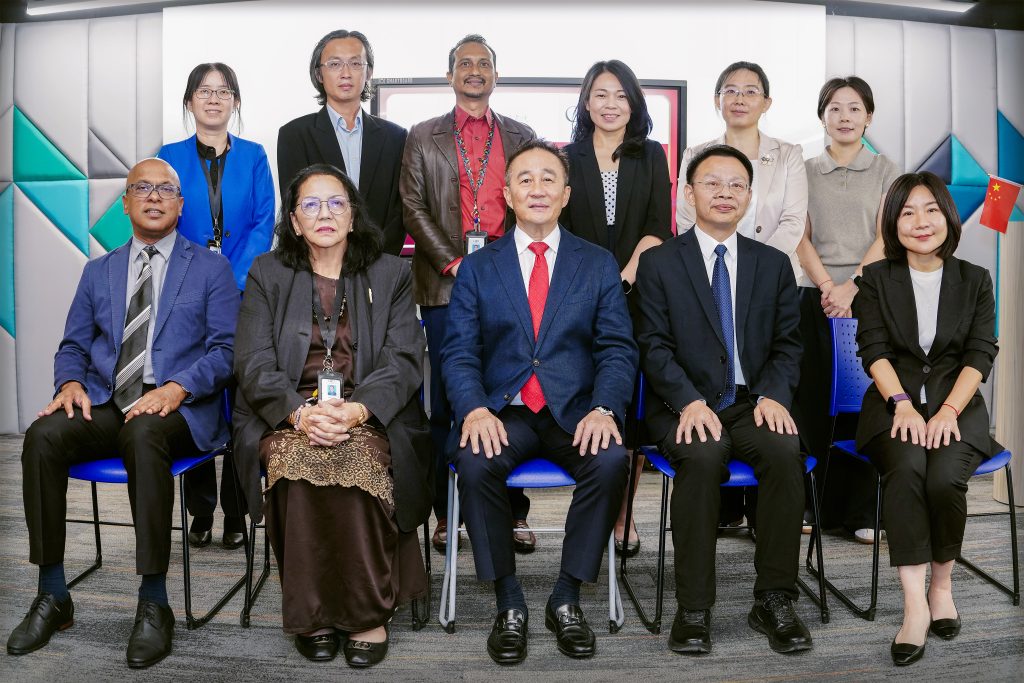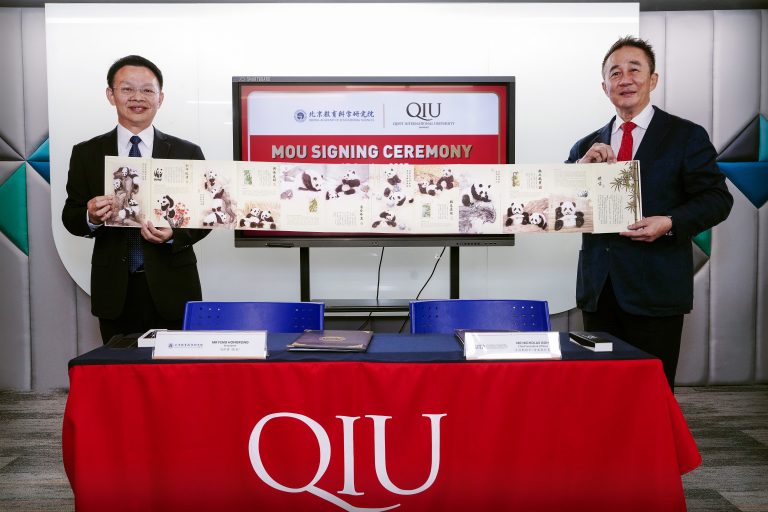QIU has taken another major step towards advancing educational innovation and inclusivity through the signing of a Memorandum of Understanding (MoU) with the Beijing Academy of Educational Sciences (BAES).
This landmark collaboration marks the beginning of a long-term partnership between Malaysia and China focused on research, innovation, and future development across all stages of education—from preschool to lifelong learning.
The MoU was officially signed in a ceremony attended by key representatives from both institutions, including Mr Nicholas Goh (Chief Executive Officer of Global Integrated Training Associates), Professor Zita Mohd Fahmi (QIU Vice Chancellor), Mr Muhammad MG Omar (QIU Registrar), and Prof. Dr Sivabala Naidu (Dean, Faculty of Social Sciences).
The Beijing Academy of Educational Sciences delegation was led by President Feng Hongrong, joined by Zhang Tingting (Director, Department for Educational Research Management and Cooperation and Exchanges), Sun Ying (Director, Special Education Research Centre), and Lu Sha (Associate Research Fellow, Special Education Research Centre).
In his address, QIU Chief Executive Officer Mr Nicholas Goh described the MoU as “much more than signing papers; it is the beginning of a shared vision and a shared promise to make education better for the future.”
He emphasised that the partnership reflects both institutions’ commitment to achieving measurable results through evidence-based strategies and their drive to nurture innovation that benefits all students, especially those with special educational needs.
BAES, a leading research institution under the Beijing Municipal Education Commission, plays a crucial role in shaping China’s educational policy through its 14 top-level research centres. It maintains close ties with local education departments and schools, covering the full spectrum of education—from early childhood development to lifelong learning.
One of BAES’ most notable achievements is its Special Education Leadership Research and Guidance Centre, which has built a five-tier support system, seven professional teams, and a national digital resource centre developed in collaboration with Huawei.
QIU, meanwhile, brings its broad academic offerings and emphasis on applying knowledge to real-world practice, creating what Mr Nicholas described as “a fast path for research findings to move from the lab to changing the rules and policies.”




The MoU establishes a strong foundation for joint research projects, staff development programmes, and resource-sharing initiatives. Both institutions aim to explore opportunities in Special Needs Education, Artificial Intelligence in Education, and educational policy development.
“Our partnership is not just about adding two groups—it’s about multiplying what we can do,” said Mr Nichilas. “The ink on this paper declares that QIU and BAES believe that education’s biggest challenges are best solved when we work together.”
The signing of this MoU underscores QIU’s continued commitment to building global partnerships that strengthen knowledge exchange and advance inclusive, innovative education.
As Mr Nicholas concluded:
“This MOU is our strong base. It is a sign of trust, a promise to work together, and a plan for a long relationship built on respect and shared hopes. We hope our collaboration will be fruitful, last a long time, and ultimately bring big, positive changes to education worldwide.”





